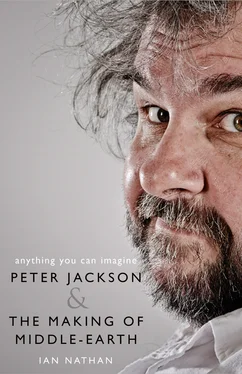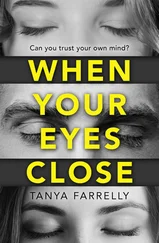1 ...8 9 10 12 13 14 ...35 ‘Harvey just stepped in and financed it one hundred per cent,’ confirms Jackson, who has been recounting the story as a matter of significant background.
Cynical Hollywood commentators, of which there are many, suspected that Miramax was already well aware the project was faltering, with Harvey ready and waiting for it to collapse so he could swoop in and save the day.
Akin to Zaentz, this was exactly the kind of project that fitted Harvey’s view of himself as both Hollywood player and indie king, as well as the philosophy of Miramax as a film company: sophisticated, literary, but with mainstream potential, and Oscar-worthy, always Oscar-worthy. Spinning gold on behalf of the inevitable awards campaign for The English Patient , Miramax’s gifted publicists spread a tale of the White Knight who saved great art from studio defilement.
Nominated for twelve Oscars (including one for Kristin Scott Thomas), winner of nine, and making $231 million around the world, The English Patient cemented Harvey’s reputation. By the mid-1990s, he was the new Selznick, but operating from New York headquarters beyond the borders of Hollywood. He wasn’t the kind of studio boss who would demand Demi Moore. He understood the needs of filmmakers. He could manage big, important films outside of the studio system. He also understood the marketplace and how to reach an audience. He could finesse, and he could bully. His methods, often cutting and re-cutting problem films — landing him the nickname ‘Harvey Scissorhands’ — he insisted were always at the service of the film. This was how, alongside Bob, he maintained Miramax’s great duality: cash and kudos.
Not that it was all about literary adaptations. If Minghella was his longing, romantic Sméagol side, then Quentin Tarantino, who wanted to storm the barricades of such strait-laced tradition as The English Patient , let alone The Lord of the Rings , was his expletive-spitting Gollum.
Between Miramax’s multiple personalities, you can also trace Harvey’s attraction to Jackson: the young Kiwi embodied that very schism. He was the director of Bad Taste , Meet The Feebles and Braindead , giddy gore hound and natural wit, predisposed never to abide by the Hollywood playbook. But then he would produce something as finely tuned as Heavenly Creatures .
It is often claimed that the two poles of Jackson’s filmmaking pedigree are what made him so ideal for adapting Tolkien.
The English Patient had finally wrapped production in 1996 when Jackson called his long-standing manager Ken Kamins and casually asked him to find out who might own the rights to The Lord of the Rings . For a certain fee, databases can be consulted. In the litigious universe of Hollywood, it is essential to cover your back. Jackson had assumed they must be with Disney or Spielberg or Lucas. ‘They would all be locked up, as they say,’ he admits. ‘And we wouldn’t have a chance. So we really went into this with no expectations at all.’
Kamins didn’t take long to discover that thirty years after buying them from UA, the rights to both The Hobbit and The Lord of the Rings still resided with Zaentz. He might not be a Spielberg or a Lucas, but this wasn’t necessarily good news. Having had his fingers burned so badly with the Ralph Bakshi debacle, Zaentz had closely guarded the rights ever since.
It wasn’t as if since Bakshi no one had returned to the idea of adapting one of the most popular books of the twentieth century in the intervening years; they had simply come up against the Black Gates of Zaentz’s resistance.
If by some miraculous chance he was to agree, says Jackson, word came back that he would want to be attached to it. ‘That is just the way he was. He was a producer himself. But he tended to say no. He had done his Tolkien thing, it was a huge disaster for him, and he had lost a lot of money by the sound of it. He just didn’t want to know about it.’
They needed a backstairs route to the rights — a secret way into Zaentz, a chance to try and persuade him. And although he didn’t know it yet, Jackson already had the perfect guide. In fact, that guide was impatiently waiting for the director to call.
Within the parameters of a first-look deal he had recently struck with Miramax, Jackson was contractually bound to first test the waters on any new idea with Harvey Weinstein. And this was a staggeringly ambitious plan.
‘The idea was to do The Hobbit as one movie, then two movies of The Lord of the Rings ,’ says Jackson. ‘Still as a package: you make The Hobbit by itself, if it is successful you then get to do The Lord of the Rings films back-to-back. A three-film thing.’
So the initial desire had been to adapt Tolkien’s books in chronological order, beginning with his first, younger-orientated Middle-earth novel: Bilbo, the Dwarves, and dislodging a fire-breathing squatter.
‘I could tell on the phone he was really excited right away,’ recalls Jackson, not yet knowing that this conversation would change his life.
The English Patient may not have yet been released but Minghella had wrought classical wonders with the strange book. Another attention-grabbing, epic production based on a tricky literary source, as directed by another of his self-styled discoveries, played right into Harvey’s view of himself as a promethean, David O. Selznick type for a modern Hollywood.
‘Who’s got the rights?’ he asked.
‘Well, it’s not going to be easy, Harvey,’ Jackson warned him, ‘because it is this guy called Saul Zaentz.’
Jackson laughs. ‘Harvey was the man who had saved The English Patient . We were talking to the right guy.’
If you put it in a script it would sound corny and contrived. No one would believe a word of it, but then so much of Jackson’s career has been decreed by what you would call fate.
Says Kamins, ‘It’s the big theme for him. He has always believed that fate was going to point him in the right direction.’
Jackson’s manager cannot think of a single conversation in all the time he has represented him where they have sat down and discussed what he should or shouldn’t do with his career. ‘Peter sort of functions by his own compass — that fate will deal him the right set of cards. And in this particular instance maybe more than any other, he was proven completely right.’
There are things that can be seen with the naked eye when you’re trying to achieve something in the motion picture marketplace and there are the things that lie hidden. You can’t ever see what’s going on behind the boardroom doors. The business decisions, the politics and agendas, the history, or the simple expediency that can come with good timing: all those invisible but significant factors that allow you to be able to do the unexpected. Otherwise known as fate.
‘Saul?!’ Weinstein boomed, his thick New York vowels reverberating down the transpacific line, more excited still by the chance to demonstrate the extent of his magical largesse: the beneficent Harvey, fulfiller of wishes. ‘I’ll call him straightaway. He owes me a huge favour.’
*
Print the legend, and the inception of Jackson’s great adventure occurred on an unspecified morning while The Frighteners was in post-production. He and Fran Walsh had got chatting about how to follow up their spectral comedy-horror. In spring 1996 things were moving for Jackson: he was now working on a Hollywood stage, with Hollywood budgets at his disposal, and to a large extent still on his own terms and staying put in New Zealand. More than ever, they needed to maintain their momentum.
‘So how about a fantasy film?’ proposed Jackson. Something like Ray Harryhausen once made, the spectaculars he had been whelped on: no irony, but a cornucopia of fantastic beasts. Only they would use the growing digital capabilities of their own visual effects company, Weta, to conjure them up rather than the chronically slow minutiae of stop-motion. Perhaps, Jackson suggested, something more classically swords and sorcery than the Arabian Nights or Greek myth that had been Harryhausen’s metier. He searched the air for an equivalent …
Читать дальше












